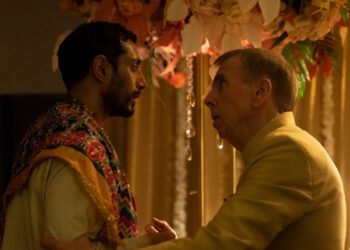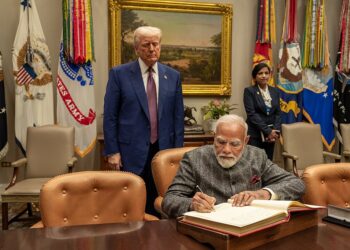When we say “Germany invaded Poland” or “America bombed Vietnam”, we blur out the fact that it wasn’t an entire nation that acted, but a handful of leaders and decision-makers.
History books often let the real culprits fade into the background, leaving behind the broad brushstroke of collective blame.
This odd human habit—of attributing human qualities to nonhuman entities—has deep psychological roots. David Hume, back in the 18th century, noticed how people see “faces in the moon” and “armies in the clouds”, imagining malice or goodwill in things that simply are. Leonardo da Vinci, with his artist’s eye, described how he saw landscapes, animals, and entire stories in the cracks of walls and the drift of clouds. Our brains are wired to find the human face everywhere.
And this wiring is not just about imagination—it shapes how we explain events. Disney has made an empire out of it: mice talk, lamps dance, and snowmen sing. Even weather systems are given names—Hurricane Katrina, Cyclone Tracy—so they feel more understandable, more “real” than just a storm front with wind speeds. During WWII, Allied soldiers often cursed “the desert” or “the sea” as if sand and water themselves were enemies plotting their misery.
But this very human-centred way of thinking also creates errors with grave consequences. When anthropomorphism leaps from cartoons to politics, we end up blaming countries rather than leaders.
Wars are waged in the name of nationalism, patriotism, or defence, and “Iraq” or “Russia” becomes the villain in the story, while the architects of war often dodge accountability.
Take Vietnam. For decades, “America” was blamed for the war, while individual decision-makers like Johnson, Nixon, or Kissinger often escaped the level of condemnation they deserved. In Cambodia, “the Khmer Rouge” is remembered as a faceless entity, but Pol Pot’s name is often diluted in that collective memory. Rwanda is remembered as “a genocide in Africa,” with the nation stained, though the genocide was the calculated orchestration of leaders and militias.
Closer to the present, in Afghanistan, “the Taliban” is blamed as if it were a single personality, ignoring the complex network of leaders and external actors who sustained it.
In Gaza today, Israel is widely branded as the genocidal aggressor, while Benjamin Netanyahu and his inner circle—those who make the final calls—are not equally etched into the global memory. Whole populations, including women and children, end up carrying the stain of wars they never chose.
The same misstep happens in other domains. In the early days of COVID-19, political leaders across the globe referred to it as “the Chinese virus,” placing the weight of blame on an entire nation rather than on the virus itself—or the failures of world leaders in handling it. Instead of investigating decisions that worsened the pandemic, entire populations became scapegoats.
Understanding this humanisation trap is crucial if we want justice, not just stories. Nations don’t have intentions. Viruses don’t plot. Storms don’t plan. It is always human beings—leaders, commanders, and influencers—who design policies, give orders, and trigger events.
Recognising this distinction helps ensure accountability rests where it belongs. Otherwise, history books will keep branding countries as villains while individuals like Netanyahu, Bush, or Pol Pot slip into the footnotes, escaping the full measure of blame.
Breaking free from anthropomorphism doesn’t mean losing the metaphors that make the world relatable. It means sharpening our focus so that responsibility sticks to the guilty, not to the nameless millions who happen to share a passport.











